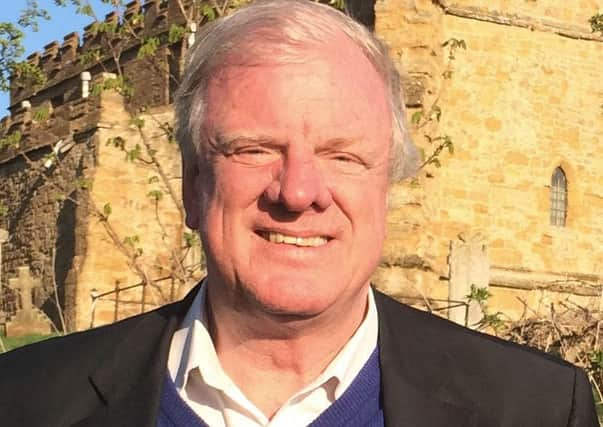Guest Column: Brexit doom-mongers are being proved wrong


Many in the remain camp still refuse to accept the result of the referendum and are keen to undermine this democratic mandate and prevent us leaving the European Union.
Already their prediction of total economic collapse has been recognised as ridiculous, but they don’t seem to be relieved that apocalypse has been averted.
I think this is fundamentally unpatriotic.
Advertisement
Advertisement
Luckily they are not in charge – our democratically accountable Government is.
The prime minister is proceeding full speed ahead with our plans to leave the European Union and secure a new friendly relationship with our friends, allies, and partners across Europe – and indeed the world.
We are certainly looking to create a good working environment for the City of London.
A lot of the financial services that go on there help fund the economy in the rest of the country, whether by direct investment or through the taxes raised from the city.
Advertisement
Advertisement
Financial ‘passporting’ – whereby banks regulated to operate in one country are allowed to operate in another without going through a separate regulatory process – has proved very advantageous to London as a financial centre.
Many in the remain campaign pretend this is somehow a smoking gun of something that will automatically disappear when we leave the EU but the reality is far less clear cut.
Yes, British banks receive financial passports allowing them to operate on the continent.
But likewise there are numerous financial institutions in the rest of the European Union who are granted passports to operate in the UK.
Advertisement
Advertisement
British banks don’t want to see their passporting rights disappear and, unsurprisingly, neither do European banks who operate here.
This came up for discussion in the commons recently and I pointed out that while 5,000 passports are issued for us to work in Europe, the number of passports issued for European institutions to work in London is more than 7,000.
This will form a fine basis for negotiation and I am sure that we can come to some reasonable accommodation on this.
We must not let the doom-and-gloom merchants of the remain campaign off the hook.
Advertisement
Advertisement
Economic armageddon is not around the corner – a deal can and will be made.
More locally, we are continuing to fight the current proposals for a directly elected mayor for Greater Lincolnshire.
We need more funding for better services, not another cumbersome and complicated layer of local government.
I have proposed that all the relevant local authorities send representatives to meet on a special board chaired by an independent outsider and that this board could then distribute the further funds the Government plans to spend in a way that is fairly agreed by all the concerned parties.
Advertisement
Advertisement
I am glad to see that opposition to the current proposals is widespread and cross-party.
An expensive new layer of government is not the way to deliver improved services across the whole of Lincolnshire.